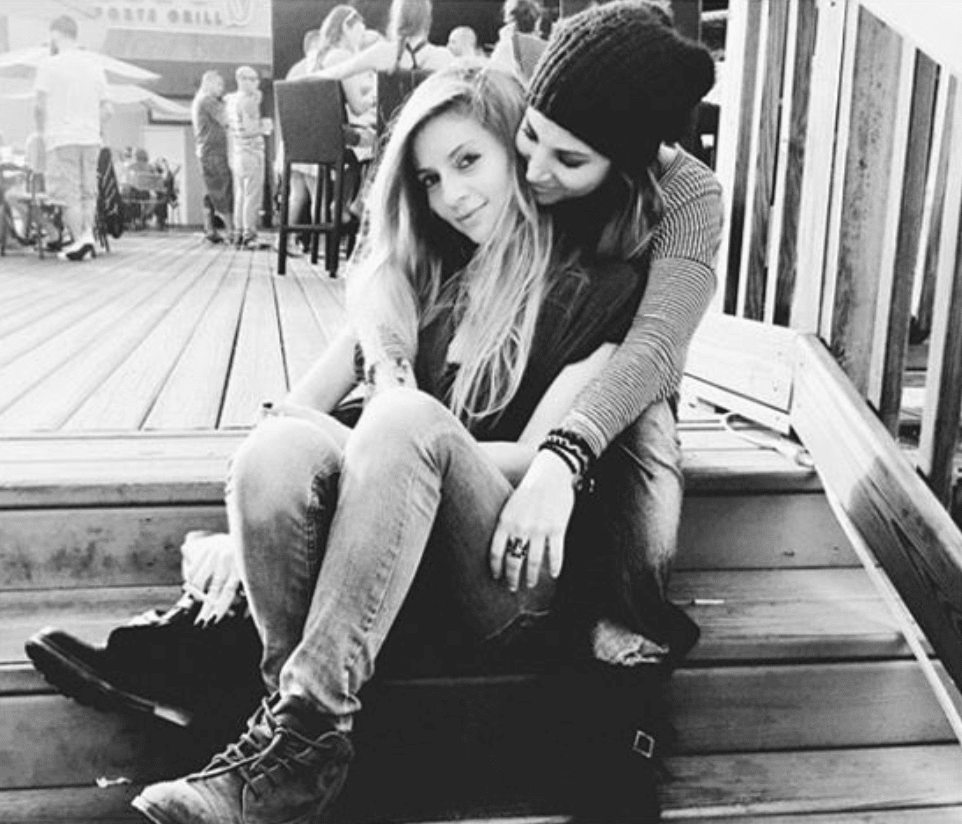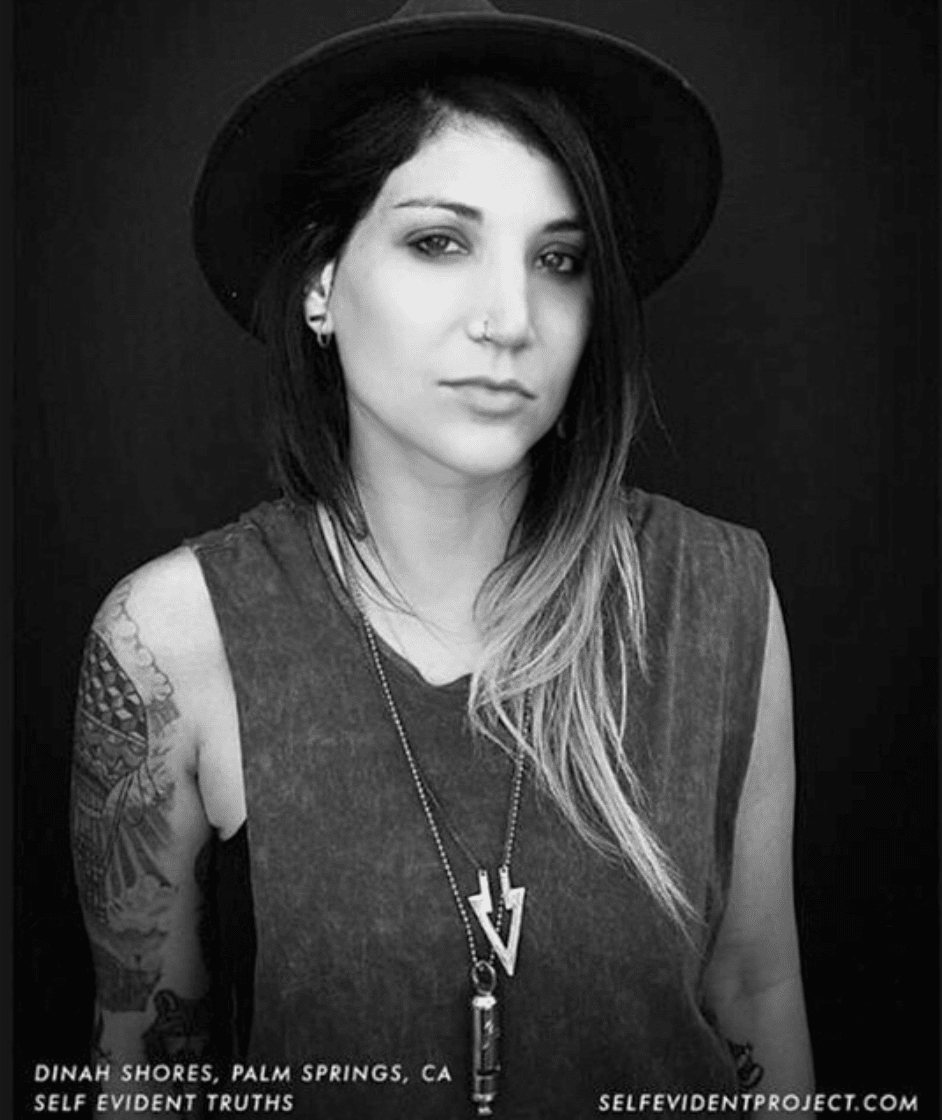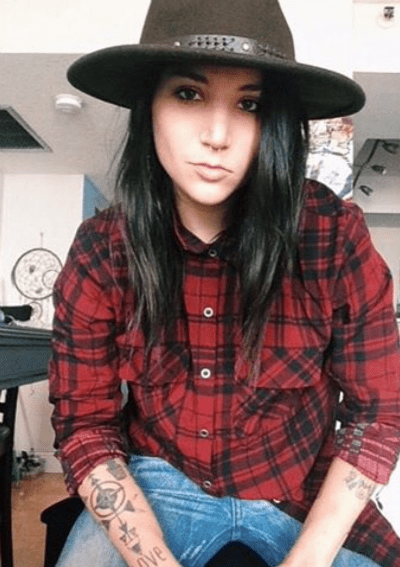Suzy, 36, had a near brush with breast cancer. This is her story.
Most of us Millennials to Gen Y have been touched by breast cancer at some point in our lives. For most of us, it’s friend of a friend relationship to breast cancer. We’ve all got acquaintances on our Facebook feeds supporting family members and friends with pink ribbons. Some of us are even unlucky enough to know someone directly affected. Generally, however, we don’t really think about it much. We don’t go to sleep holding our breasts. It’s not something that crosses our minds as an impending threat to our healthy bodies. It’s something that happens to other people, something saved for a later life-stage. It’s something most of us walk for, but don’t necessarily feel like we are running from.
For Miami native Suzy, 36, cancer has never been a once-removed kind of thing. It’s been more of a stalker, something that’s lurked silently, coming out of the shadows claiming relatives time and time again. At 8, Suzy remembers very clearly the moment she became aware of the imminent danger cancer would come to be in her life. The moment Suzy’s mother told her she’d made a doctor’s appointment because she had found a lump while showering, everything changed. Suzy suddenly began to feel the watch of cancer over her shoulder.
With a family history of cancer having touched her grandmother, mother, aunts and great aunts, regular screening was something Suzy was diligent about.
At 32 an irregular mammogram led to a benign biopsy, but doctors suggested that a genetic test for the BRCA1 mutation was a reasonable precaution. They were right. The test came back positive. Suzy was told she had an 87% chance of developing breast cancer. If any of us had that chance of dying every-time we stepped out on the street, we’d would probably opt for a life of Netflix and takeout. When I asked Suzy about how she felt when she heard the news, she told me, “To be honest it was one of those ‘I knew it’ moments. I wasn’t scared or surprised. I always knew it was coming for me in some strange way… When I watched my mother tackle it, in my mind, I already knew this was my fate.”
The day after Suzy received her results, she made an appointment with an oncologist – the same one who had successfully treated her mother years before. During her appointment, the oncologist explained to Suzy that it was as though she had a category 5 hurricane on her doorstep.
“In my head, though, I was already prepared to do what I had to do, which was the double mastectomy. I was 35 and considered myself a few years lucky that I hadn’t already had a run-in with cancer… Hearing the oncologist’s scenario only made me that much more sure of my decision… From there things happened quickly. The oncologist was very clear about not wanting to wait – given my age and family history. The following day, I met with my plastic surgeon, and literally a few days later I was scheduled for surgery and my breasts were gone.”
While Suzy’s queer peers were enjoying the body-revealing perks of the Miami fashion scene, Suzy – formerly an @Out_Girls event promoting frontwoman – suddenly found herself recovering from major surgery and adjusting to her new body. While aesthetics are obviously secondary to the choice to survive, body image challenges are an unavoidable side effect of mastectomy surgery. When I asked Suzy, style icon and #WCE to lesbians everywhere (thanks to her Instagram account @suzy_since_1980 ), how she felt with regards to body image, she confessed:
“Before surgery, I felt really strong minded, it was sort of a really empowering feeling. I was going to take control over my future and fears and not let this ever kill me! That was how it was going to go. I looked in the mirror maybe a handful of times, and tried to imagine myself without them – ‘my breasts.’ I had a couple random thoughts like ‘who will judge me?’ ‘Will my girlfriend still find me attractive?’ But it wasn’t really until after the surgery when all the body image concerns truly came into mind.”
Suzy’s parents were the ones there with her when she woke from surgery.
While she was “so out of it” from medications, she remembers being very clear about wanting to see her chest as soon as she opened her eyes. “I remember when I woke up from surgery, the first thing I wanted to do was look at them. Seeing what they looked like at that moment, left me breathless. That was the first time I cried. They looked AWFUL, gross. I immediately right then and there became worried about my image, would they heal normally? Why did it look so bad?”
 Suzy remembers feeling especially vulnerable during the early months of recovery. Before the whirlwind of BRCA results and scheduled surgery, Suzy and her longtime girlfriend Stephanie had decided to take a break while she was away on an extended trip to Venezuela.
Suzy remembers feeling especially vulnerable during the early months of recovery. Before the whirlwind of BRCA results and scheduled surgery, Suzy and her longtime girlfriend Stephanie had decided to take a break while she was away on an extended trip to Venezuela.
“I remember having many thoughts post surgery of what Stephanie would think when she saw me again. If we didn’t get back together, would anyone ever love me the way I looked now?”
When Stephanie returned from Venezuela and Suzy showed her her scars for the first time, Suzy was surprised at Stephanie’s reaction.
“She simply said to me ‘You ARE beautiful.’ As I’m typing this, I’m actually tearing. Those three simple words were everything. That was one month after my surgery. From then on we worked everything out. Stephanie helped me change my bandages, helped me mentally with my ego, uplifted me and still to this day tells me I’m beautiful whenever I’m undressed.”
Recovery was something Suzy didn’t anticipate being as long and challenging as it proved to be. Early days required a lot of practical support. With massive pain and very limited use of her arms (something many of us wouldn’t think of regarding mastectomy surgery) Suzy’s mother had to assist her with just about everything. “Recovery was a huge process, finding a way to sleep even without discomfort was huge.” As physically and emotionally difficult as the surgery and recovery was for Suzy, she’s maintained an appreciative perspective the whole way through.
“For some reason I was never angry… Still to this day, I’m not filled with anger. This experience has shown me who my real friends are. It has brought me closer than ever to my mom and my sister Melissa who took care of me too. I had major complications after my implant surgery; a blood clot and lung complication landed me in ICU. Doctors were warning my family that it could be deadly. My mom and sister rotated around the clock making sure someone was always with me. I was so sick to my stomach from my all the meds, I couldn’t even wipe myself. It was a really humbling and scary time.
I don’t know what I would have done without them by my side. It was unglamorous and terrifying and they got me through it. We developed a really special bond and appreciation for each other through this.”
It’s been almost 2 years since Suzy’s surgery.
A lot has changed for her. Practical things like sex, fashion and relationships have all required some adjustments. While it’s been a process, Suzy has really taken it all in stride.
“Things have naturally become different. But my decision saved my life. I stand by that. Sure, with my arm strength post-op, rolling around in bed was def off limits for awhile. But little by little I got stronger. I’m so grateful for Stephanie’s patience and support. On a sexual level I feel nothing when touched in my upper chest. Just feels like pressure ( so that sucks lol)… but as far as it affecting us, it didn’t. It made us stronger, together. As far as style, I never wear a bra now even with the implants. It bothers me even still. On the plus side ‘hey my tits don’t sag as much!’ – which at 36, is pretty cool! My scars are still very much visible, so I can’t wear certain tops and bikinis without feeling uncomfortable about my scars showing. I still have one more surgery to go as well to and some tattooing to do to reconstruct my nipples. Maybe soon I won’t care, but at the moment, I try to cover them when possible.”
I have noticed one thing about Suzy throughout our conversations about her mastectomy journey: she is real. She’s never held back, glossed over or tried to downplay the impact that having cancer peer over her shoulder most of her life has had. Having a double mastectomy inevitably changes you. Having one in your early 30s changes a lot more than your Instagram feed and wardrobe.
With pop culture seemingly fixated on women’s breasts, it’s no surprise that losing them can have a devastating effect on a young woman’s sense of self-worth. Getting the news that you have an 87% chance of developing cancer is terrifying. A mastectomy can save your life, but dealing with the resulting scars exacts a toll. Breasts are a presentation of our femininity and sexuality. In losing them, pieces of our identity are also dislodged.
“I’m not perfect. I wasn’t perfect when I had my breasts, I’m not perfect with my implants either. I have scars that I look at every day. Some days, I look in the mirror and to be honest, I hate it. Some days I look in that same mirror and I think ‘Fuck it! I love my scars! I’m alive!” When I compare myself to gorgeous models or one of my pretty friends, Ya I don’t look like them and I never will. I will always be different now, my breasts will never be the same. They will never feel the same. But I’m ok with that now because I’ve accepted this was my fate. I just have to keep going, keep telling myself I’m beautiful, keep learning from my experience. Most importantly, I keep allowing myself to be open about the topic because if it changes one person’s perspective or life, it makes this all worth it.”

Advocacy is something very important to Suzy.
Many times over past months when she and I would connect on other projects, she would bring up wanting to share her story. Still feeling very vulnerable, she was hesitant and wanted to make sure she felt “healed” enough to have her scars exposed so publicly. Especially the ones tucked away in the corners of her self-concept, tied to her self-esteem, sexuality and femininity. So we took our time, chatted here and there over cell phone light about how best to get the message to young women in our community.
Then, in the pauses of a text message conversation, Suzy’s aunt was diagnosed and passed away. Her brother and sister both tested positive for BRCA 1, all within that same month. Suzy decided then that time was a luxury cancer doesn’t afford anyone. Moments aren’t something any of us have to waste. If she was going to save lives and reach communities that might not be “getting” the mainstream message about cancer, she needed to act now and share her story.
Breast Cancer isn’t just a 40+ hetero concern. It’s everyone’s concern. Regardless of your age, sexuality, family history, gender identity or size of your breasts, cancer can come for you. Queer women born both XX and XY have an increased risk of breast cancer, in part due to risk factors unique to our community such as not bearing children, doing so after the age of 30, and the use of HRT aka Hormone Replacement Therapy used by Trans people.
Many queer people have varying degrees of gender dysphoria related to their bodies. Acknowledging and checking breasts they bind or that feel opposite to their experienced gender can be emotionally distressing. Access to healthcare in marginalized communities as well as fear of discrimination and insensitivity at the hands of healer professionals also has many avoiding testing.
“Get checked. Early detection can save you. There are many reasons to not go, I get it! But there is one big reason to do it. Your life. It takes no time at all to schedule an appointment and get checked, but not doing it could cost you your whole life… Let’s also continue to support each other, and be open about our bodies. That’s so important. Women’s value and beauty isn’t located only in our breast tissue. Get checked. Check-ups buy us time, advantage and choices. Remind the people in your life with breasts to do it too and support one another. ”
This piece was written in honour of Karen Schick, Physician, who passed away suddenly from cancer leaving behind 3 children and a very brave niece: Suzy.

-1024x768.jpg)